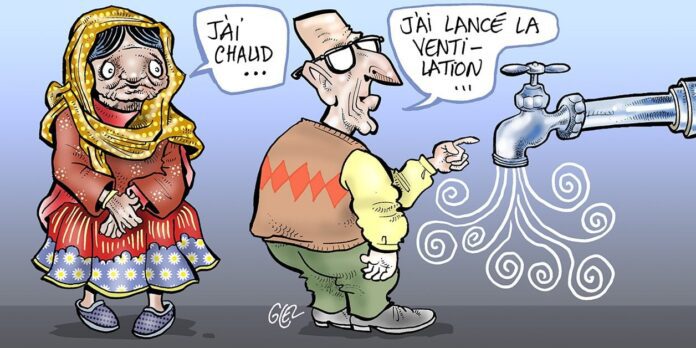Visible effect of global warming or temporary epiphenomenon? Tunisia's thirty dams have already seen at least 70% of their capacity emptied this year. Some… 100%. At issue is the drought that has been worrying countries on both sides of the Mediterranean since winter.
In Tunisia, the time for restrictions has come, in two stages. On March 31, considering that the risk of water shortage was imminent, authorities decided to interrupt public supply between 20 hours and 3 am, and this until September, when the water reservoirs should be better. A poorly received decision while the month of Ramadan was still in full swing.
Forced to adapt to the economic situation, the National Water Use and Distribution Company (Sonede) tries to ration the precious liquid, suggesting the reduction of consumption linked to low priority activities, such as washing cars, respecting green spaces within the city ,cleaning public roads, filling swimming pools or irrigating outside the capital.
Unable to control?
Everyone is trying to avoid restrictions as best they can, filling all kinds of reserves, in particular simple buckets that are supposed to make sellers' fortunes. The consequence is, in parallel with the night cuts, an exceptional increase in consumption during the day. Water science experts therefore call for supplementation O awareness system by defining an authorized storage amount. All that remains is to know how to control, in the privacy of each home, the containers accumulated under the washbasin or sink…
Some look for “blue gold” outside of Sonede’s distribution circuits. Good idea when it comes to replacing rainwater that, without it, would disperse into the meanders of the alleys. A double-edged facade when it comes to digging a personal well that in the end further contributes to the depletion of groundwater.
Supported by activists, lambda users in turn worked to blacklist large consumers such as manufacturers and industrialists. Experts even suggest collective reflection to optimize water consumption in these sectors. The most pessimistic ones just have to scan the clouds, as the month of May approaches, which traditionally sees rain become scarce in the north of there Tunisia…

